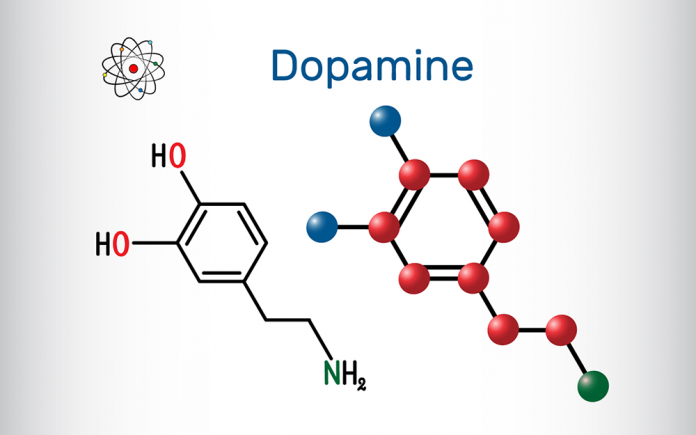
By M. Wheel-Zot M.A.S
Can gateway drugs initiate and trigger substance abuse? Let us investigate how our bodies work with drugs and even food. The definition of a gateway drug is a substance that triggers the body, when consumed, to crave more of that drug or food. When gateway drugs and certain foods are consumed, it unlocks something in the body’s gene and epigenetic DNA; delivering a compound already present in the body, which is dopamine and several other hormones.
Dopamine is a neurotransmitter and precursor of other DNA substances including epinephrine. These hormones are coined “the feel-good hormones”. The bodies miraculous neuro messengers, the hormonal compounds that can give a body relief of pain or a euphoric feeling within a state of being.
Once these hormones are released by our body’s glands within the bloodstream, the hormones act on your bodies organs and tissues controlling the way you function and feel. Hormones are a powerful driving force within the makeup of the human body. The human body consist of about one-hundred trillion cells. Imagine each one of these cells, which carries its own nucleus, meaning a little brain that trigger the messengers or neurotransmitters of the body; to produce the feel-good hormones. Wow! The human body is a powerful organic machine!
The Four Feel Good Hormones:
- Dopamine-a compound present in the body as a neurotransmitter and a precursor of other substances.
- Serotonin-a compound present in blood platelets and serum, which constricts the blood vessels and acts as a neurotransmitter.
- Endorphins-hormones secreted within the brain and nervous system. These are peptides which activate the body’s opiate receptors.
- Oxytocin-is a peptide hormone and neuropeptide usually produced in the hypothalamus and is released by the posterior pituitary. It plays a role in social bonding.
What does this mean for the human gene pool? What this means is that our bodies are made up in ways that can be addictive or not addictive. The study of identical twins, adoptees, siblings, and fraternal twins associates that less than half of someone’s high risk of addiction to drugs, alcohol, and food is dependent on her or his genes. Scientists and research suggest that the biological makeup is key to someone having and creating an addictive behavior.
A study of identical twins with the same genetic blueprint, showed over time with nature and nurture; when these twins were exposed to choices- their genes created a memory database within the cells structures. These cellular memories are the mark of epigenetics, which means that new created habits can be copied by our human gene pool and passed down to future generations. Therefore, it’s important for humanity to create healthy habits and healthy behaviors with all medicines, foods, and alcohol. This includes cannabis, coffee, tea, CBD, and kombucha as well. Please note, especially for chronic illness sufferers always confide with you doctor. Also, I know at some deep level of consciousness we are all doing the best we can with what we have been taught and what our genes are predisposed too…
What is key here is the choice we make for treating our body when we are sick. The key here is when your body is diseased with illness it is not at ease. Therefore, your body is telling you to take care of itself. When given choices for any type of healing regiment one needs to take in consideration if they have a family gene pool with the disposition of addiction and make a responsible choice as how you and your doctors will target treatment.
Research: Is there a gene linked to Cannabis Addiction?
It has been documented in a nationwide discrete cannabis trial among chronic sufferers; that 2,300 cases among 49,000 controls; that less than 30 percent of the trial participants showed that there was some problematic use with cannabis medicine; meaning that the participants didn’t react well with the cannabis treatment, where some of the participants showed signs of addiction to cannabis with high amounts of THC. Yet, the genetic architecture of each participant was not clear. However, genome identification is being studied to see who is at risk for cannabis addiction. However, 70 percent of participants showed a positive reaction to cannabis when treating an ailment.
Further, genetic research indicates that the cerebellum of the brain is involved in many of the cannabis disorders. Yet, because of cannabis studies, and the study of epigenetics; scientist soon will be able to pinpoint the genome marker of one’s body; to custom fit a potential best medicine option for that patient.
Key Points to Remember:
- Genes are functional messengers of DNA that create the genome.
- Genes have the information that command the body’s cellular movements.
- Genes, known as mutations, cause diseases in patients.
- Gene sequencing finds a connection between a known gene and a disorder of genes.
- Your health is determined by your genes and your environment. (Nature & Nurture)
- Epigenetics is the study of how humans inherited genes and changes in the regulation of gene activity expressions.
- Researchers are studying genes to create targeted medications for everyone.
Scientist and research have come a long way in identifying many of the body’s hormones, genes, and how epigenetics plays a key roll in how our cellular memory bank evolves. Because of many cannabis trials and studies, science is beginning to identify genomes in the body that will teach us what could be a best option when treating any ailment. The human body has existed for thousands of years and now science is learning how to fine tune many of the key components to genes and its God particle.
Remember when using any cannabis medicine please consult with your health care provider.
Note: Awareness and Mindfulness is key to many of the body’s needs.










































